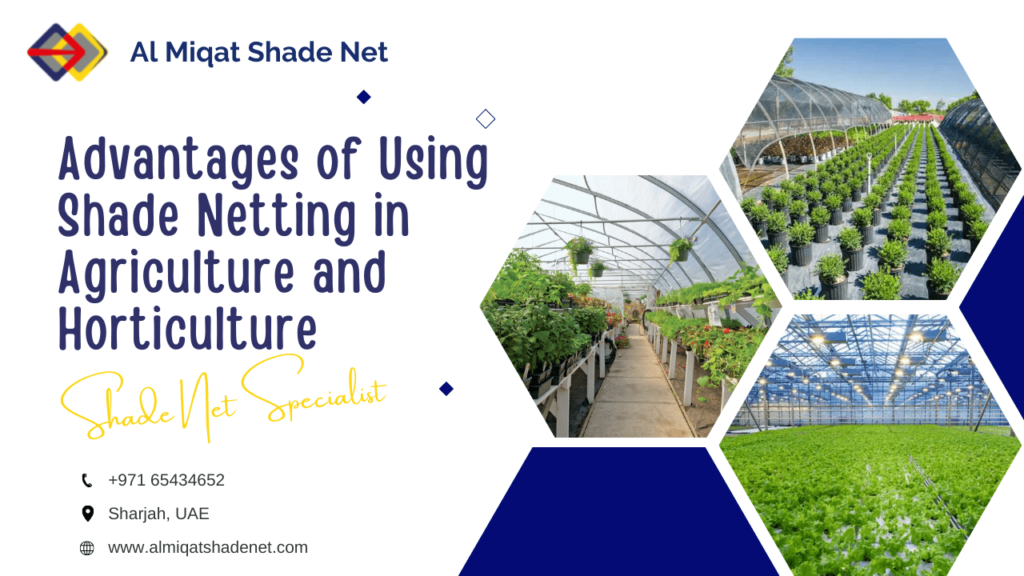Shade netting has become an invaluable tool in the world of agriculture and horticulture. With its ability to regulate sunlight, protect crops, and create optimal growing conditions, shade netting offers a range of advantages for farmers and gardeners alike. In this blog, we will explore the top benefits of using shade netting in agricultural and horticultural practices.
1. Temperature Regulation:
One of the primary advantages of shade netting is its ability to regulate temperature. By providing partial shade, it helps to reduce the intensity of sunlight and prevent overheating. This is especially crucial in regions with high temperatures, as it helps to create a more favorable environment for plant growth.
2. Protection from UV Radiation:
Shade netting acts as a barrier against harmful UV rays. Excessive exposure to UV radiation can damage crops and hinder their growth. By filtering out a portion of the UV rays, shade netting protects plants from sunburn, leaf scorching, and other related issues.
3. Reduced Water Consumption:
Shade netting reduces water evaporation from the soil, resulting in lower water consumption. The netting helps to retain moisture, allowing plants to stay hydrated for longer periods. This not only conserves water but also reduces the frequency of irrigation, saving both time and resources.
4. Pest and Insect Control:
Shade netting serves as a physical barrier, preventing pests and insects from reaching crops. It acts as a shield against common garden pests such as aphids, whiteflies, and mites. By keeping these pests at bay, shade netting reduces the need for chemical pesticides and promotes healthier, more organic cultivation practices.
5. Protection from Extreme Weather:
Shade netting provides protection against harsh weather conditions, such as heavy rain, hail, and strong winds. It acts as a shield, minimizing the impact of these elements on crops. By reducing damage caused by extreme weather, shade netting helps maintain the health and productivity of plants.
6. Enhanced Crop Quality:
With the right shade netting, farmers and gardeners can improve the quality of their crops. By controlling the amount of sunlight, shade netting helps to regulate plant growth, resulting in more uniform and desirable crop characteristics. This is particularly beneficial for crops that are sensitive to direct sunlight.


